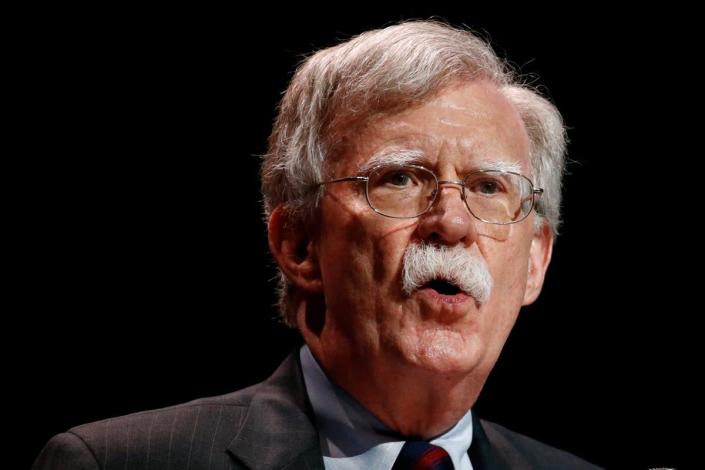
The plot to kill John Bolton was as cinematic as it was brazen. It involved pre-operational surveillance, crypto transfers and more than a year of cultivation.
According to the US Justice Department, in October 2021, an Iranian man living in Tehran named Shahram Poursafi asked a person he had met previously online to track and eventually kill the former national security advisor. Poursafi, 45, whom the Justice Department claimed was working for Iran’s Islamic Revolutionary Guard Corp, instructed his contact to talk in code, and promised to pay $300,000 in cryptocurrency for the deed.
The person he hired to carry out the killing was, unfortunately for him, a confidential FBI source, which rather dramatically reduced the mission’s chances of success.
That Iran would attempt to carry out an assassination of a former official in a foreign country is not surprising. But this plot might tell us something important about the future relationship between Iran and the US.
Key to understanding where that relationship stands is the Justice Department’s note that the operation was “likely in retaliation for the January 2020 death of Iran’s Islamic Revolutionary Guard Corps – Qods Force (IRGC-QF) commander Qasem Soleimani.” Soleimani — revered in his home country and considered by many to be the second-most powerful man in Iran behind Supreme Leader Ayatollah Ali Khamenei — was killed on the orders of then-president Trump in January 2020.
The assassination was the culmination of a years-long campaign of antagonism led by Trump. His decision to end a deal brokered by seven countries, over two years, to curtail Iran’s nuclear program was only the beginning of that campaign. All of the parties involved in the deal were insistent that it was achieving its primary purpose: to stop Iran from building a nuclear weapon. But Trump nonetheless pushed ahead and dismantled his predecessor’s most significant foreign policy achievement.
With Trump out of the White House, and a new administration in place with new goals, Washington might have been forgiven for assumoing that everyone had moved on from the assassination and the antagonism. But the plot against Bolton is just one of many signs that Tehran has not.
This dynamic gets to the heart of why the relationship between Iran and the US remains strained, and will remain so for years.
At this very moment, US and Iranian negotiators are considering a “final” offer of a renegotiated nuclear deal that would replace the 2015 agreement. But the shadow of Trump’s one-term presidency hangs over the proceedings. One of the key sticking points is an insistence by Iran that the Biden administration provides a guarantee that a future president cannot withdraw from the deal unilaterally, as Trump did in 2018. Experts have said it would be nearly impossible to provide such a guarantee.
This brings us back to the plot to kill Bolton. While the US governs in four-year increments, Iran governs in decades. The nature of the American political system requires that each president can decide to honour or renege on the agreements of their predecessor, regardless of the consequences — which, in the case of the Iran deal, were severe and detrimental to global security.
“Any nation reserves the right to correct a past mistake,” Bolton, a longtime Iran hawk and supporter of regime change in the country, said in 2018 at a press conference. That answer came in response to a question about whether the US withdrawing from the nuclear deal was “a signal that the United States can now make deals and then get out of them if the political winds change”. In his view, the earlier deal was no longer in the US’s “strategic interest,” so it had to be ditched.
Strategic interest is, of course, subjective. It didn’t matter that Biden clearly disagreed with what Trump did. Outside of the US, the message was simple: Deals made with America have a short shelf life.
Iran doesn’t see the election of a new administration as a new dawn. Rather, it sees a superficial changing of the guards. That is why it has not stopped seeking revenge for the killing of Soleimani, and probably never will. The Bolton assassination plot was likely hatched during Trump’s presidency, and it was immune to the change of administration in Washington DC.
And even now, as world powers are on the verge of agreeing on a new nuclear deal, Iran is likely already preparing for the possibility that the next president will tear it apart all over again.




